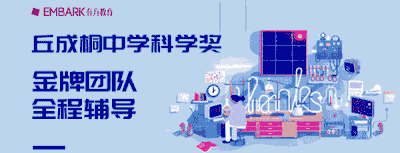获奖作品基本信息
| 年份 | 2019 |
| 学科 | 植物科学 PLANT SCIENCES |
| 国家/州 | ME,United States of America |
获奖作品名称
Testing the Effectiveness of Mycorrhizae in the Phytoremediation of Heavy Metals from Stormwater
获奖作品摘要
Heavy metals found in stormwater runoff are a pervasive environmental issue. Heavy metal contamination in places like Flint Michigan have brought a new awareness to the problem. These pollutants pose a threat to not only the aquatic life who inhabit the water bodies, but to humans as well. Phytoremediation, the use of plants to remove non-volatile and immiscible soil contaminants, has gained popularity in recent years as a possible method to remove these pollutants due to its cost efficiency and aesthetics. Although phytoremediation techniques have been researched thoroughly over the past three decades, the incorporation of arbuscular mycorrhizal fungi, those that form symbiotic associations with the roots of host plants, to these techniques, have been minimally explored in stormwater research. This study investigates the effectiveness of mycorrhizae in the remediation of copper (Cu) from stormwater. An experiment was set up where filters, which consisted of the host plant (sorghum sudangrass), growth soil media (a sterilized mixture of perlite, vermiculite, and sand), and mycorrhizal inoculum (species Rhizophagus intraradices) were compared to control filters that contained only sterilized soil media and sudangrass. After six weeks of growth, a heavy storm event was simulated for a week by treating respective plant groups with 50mL of 0 ppb, 500 ppb, and 1000 ppb of Cu(NO)3 solutions. Spectrophotometry was done on the filtrate of the plant groups (mycorrhizal and non-mycorrhizal) to see which group removed the greatest concentration of metals. Although a treatment effect was evident, a t-test value of 0.2142 showed that there was no statistically significantly difference in filtrate concentrations of plants infected with mycorrhizae and those that were not.
高中生科研 英特尔 Intel ISEF
资讯 · 课程 · 全程指导
请扫码添加微信好友

高中生科研竞赛 英特尔 Intel ISEF 简介
英特尔国际科学与工程大奖赛,简称 "ISEF",由美国 Society for Science and the Public(科学和公共服务协会)主办,英特尔公司冠名赞助,是全球规模最大、等级最高的中学生的科研科创赛事。ISEF 的竞赛学科包括了所有数学、自然科学、工程的全部领域和部分社会科学。ISEF 素有全球青少年科学竞赛的“世界杯”之美誉,旨在鼓励学生团队协作,开拓创新,长期专一深入地研究自己感兴趣的课题。
>>> 实用链接汇总 <<<
学科简介:植物科学 PLANT SCIENCES
Studies of plants and how they live, including structure, physiology, development, and classification. Includes plant cultivation, development, ecology, genetics and plant breeding, pathology, physiology, systematics and evolution.
Subcategories:
Agriculture and Agronomy (AGR): Application of the various soil and plant sciences to soil management and agricultural and horticultural crop production. Includes biological and chemical controls of pests, hydroponics, fertilizers and supplements.
Ecology (ECO): The study of interactions and relationships among plants, and plants and animals, with their environment.
Genetics and Breeding (GEN): The study of organismic and population genetics of plants. The application of plant genetics and biotechnology to crop improvement. This includes genetically modified crops.
Growth and Development (DEV): The study of a plant from earliest stages through germination and into later life. This includes cellular and molecular aspects of development and environmental effects, natural or manmade, on development and growth.
Pathology (PAT): The study of plant disease states, and their causes, processes, and consequences. This includes effects of parasites or disease-causing microbes.
Plant Physiology (PHY): The study of functions in plants and plant cells. This includes cellular mechanisms such as photosynthesis and transpiration, and how plant processes are affected by environmental factors or natural variations.
Systematics and Evolution (SYS): The study of classification of organisms and their evolutionary relationships. This includes morphological, biochemical, genetic, and modeled systems.
Other (OTH): Studies that cannot be assigned to one of the above subcategories. If the project involves multiple subcategories, the principal subcategory should be chosen instead of Other.




